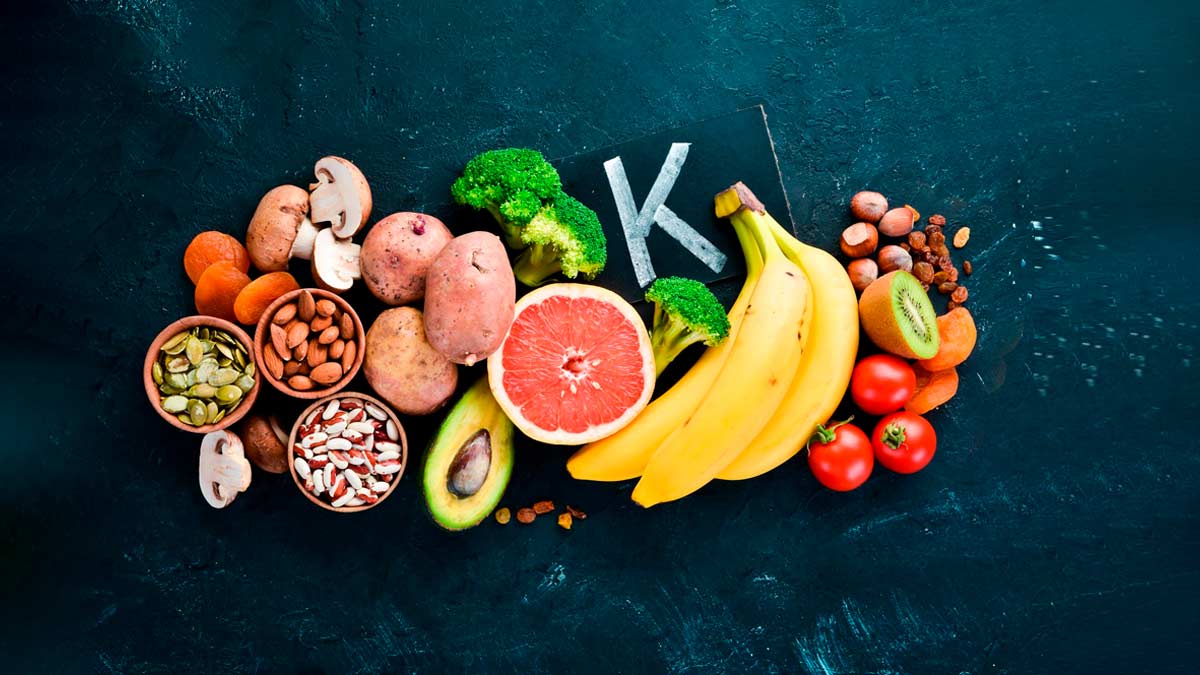
Vitamin K2 is a fat-soluble vitamin that plays a crucial role in blood clotting, bone health, and cardiovascular health. Blood clotting is a complex process that involves several proteins, including clotting factors, platelets, and fibrinogen. Vitamin K2 helps activate these proteins and promotes their binding to calcium, which is necessary for blood clot formation. However, excessive clotting can lead to cardiovascular diseases such as heart attacks and strokes. In this blog, we will discuss the role of vitamin K2 in blood clotting and how it can prevent cardiovascular disease.
K1 and K2: Vitamin K forms
There are two primary forms of vitamin K: K1 (phylloquinone) and K2 (menaquinone). Vitamin K1 is found in green leafy vegetables and is the primary source of vitamin K in the human diet. It plays a crucial role in blood clotting by activating clotting factors. On the other hand, fermented foods and animal products contain vitamin K2. It has been shown to substantially affect calcium regulation and bone health more than vitamin K1. Vitamin K2 is also essential for preventing excessive blood clotting, which can lead to cardiovascular disease.
Vitamin K2 and Calcium Regulation
Vitamin K2 plays a critical role in calcium regulation. Calcium is necessary for bone health but can accumulate in soft tissues, leading to cardiovascular disease. Vitamin K2 activates a protein called osteocalcin, which binds to calcium in bones and helps to mineralize them. Additionally, vitamin K2 activates another protein called matrix Gla protein (MGP), which helps to prevent calcium from depositing in blood vessels and other soft tissues. This mechanism helps to protect against arterial calcification, which is a significant risk factor for heart disease. Therefore, vitamin K2 is crucial for both bone health and cardiovascular health.
Vitamin K2 and Bone Health
Vitamin K2 is essential for bone health because it helps to activate osteocalcin, a protein that binds calcium to bones. Without enough vitamin K2,
osteocalcin remains inactive, and calcium cannot be adequately deposited in bones. This reduces bone density and increases fracture risk. Studies have shown that vitamin K2 supplementation can improve bone mineral density and reduce fracture risk, especially in postmenopausal women. Therefore, consuming adequate amounts of vitamin K2 to support strong and healthy bones throughout life is essential.
Vitamin K2 and Cardiovascular Health
Vitamin K2 is also crucial for cardiovascular health. It helps to prevent the accumulation of calcium in arterial walls, which can lead to atherosclerosis, a condition in which arteries become narrow and stiff. Atherosclerosis increases heart attack and stroke risk. Vitamin K2 achieves this by activating matrix Gla protein (MGP), which binds to calcium and prevents it from depositing in arterial walls. Studies have shown that low levels of vitamin K2 are associated with an increased risk of cardiovascular disease. In contrast, supplementation with vitamin K2 can improve cardiovascular health and reduce the risk of heart disease.
How Does Vitamin K2 Prevent Cardiovascular Disease?
Vitamin K2 prevents cardiovascular disease by activating a protein called matrix Gla protein (MGP), which helps to prevent calcium from depositing in arterial walls. MGP is produced by vascular smooth muscle cells and is activated by vitamin K2. Once activated, MGP binds to calcium and prevents it from depositing in arterial walls, where it can cause atherosclerosis and increase the risk of heart disease. Additionally, vitamin K2 helps to reduce inflammation, which is also a risk factor for heart disease. Therefore, adequate intake of vitamin K2 is essential for preventing cardiovascular disease and maintaining overall cardiovascular health.
Vitamin K2 Deficiency and Blood Clotting Disorders
Vitamin K2 deficiency can lead to blood clotting disorders such as excessive bleeding and bruising. This is because vitamin K2 is necessary for activating clotting factors, which help stop bleeding when a blood vessel is damaged. Without enough vitamin K2, clotting factors remain inactive, and the blood cannot clot properly. Additionally, vitamin K2 deficiency can lead to cardiovascular disease due to the inability to activate matrix Gla protein (MGP) and prevent arterial calcification. Therefore, adequate amounts of vitamin K2 are essential to prevent blood clotting disorders and cardiovascular disease.
Food Sources of Vitamin K2
Vitamin K2 is found in various animal-based foods, including dairy products, meat, and eggs. The highest sources of vitamin K2 are fermented foods, such as natto, a Japanese fermented soybean product. Natto contains a unique form of vitamin K2 called menaquinone-7 (MK-7), which has a longer half-life than other forms of vitamin K2 and is, therefore, more effective at preventing arterial calcification. Other sources of vitamin K2 include liver, chicken, cheese, and butter. Plant-based sources of vitamin K1 do not convert well to vitamin K2 in the body, so consuming animal-based sources of vitamin K2 is vital to ensure adequate intake.
How to Incorporate Vitamin K2 into Your Diet
Incorporating vitamin K2 into your diet can be done by consuming various animal-based foods. Cheese and butter can be added to meals as toppings or used in cooking. Natto, a traditional Japanese food, can be consumed as a snack or added to dishes such as sushi. Eggs and meat, such as chicken and beef, can also provide a good source of vitamin K2. Additionally, vitamin K2 supplements are available in capsule or liquid form. It is essential to consult a healthcare provider before beginning any supplementation regimen to ensure safe and effective use.
Conclusion
Vitamin K2 is crucial in bone and cardiovascular health and prevents blood clotting disorders. While some animal-based foods are good sources of vitamin K2, many people may need to consume more to meet their daily requirements. A high-quality vitamin K2 supplement, such as the Ephuroalabs Vitamin K2 supplement, can help ensure adequate intake and support overall health. Talking to a healthcare provider before starting any supplement regimen is always important.


























